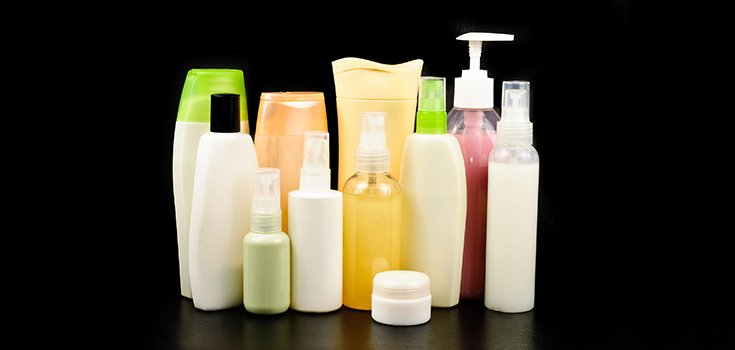Adverse Effects from Personal Care Products Climb 300% in 2016

Reports of side effects caused by cosmetics and personal care products sold in the U.S. more than doubled in 2016, and that’s partly due to complaints about WEN by Chaz Dean Cleansing conditioners, according to recent study. [1]
Researchers looked at data on side effects reported to the U.S. Food and Drug Administration (FDA) from 2004-2016 for products including makeup, sunscreen, tattoos, hair color, perfume, shaving creams, and baby care items. A total of 5,144 adverse events were reported to the agency during that time, with an average of 396 a year, the team writes in JAMA Internal Medicine.

Side effect reports skyrocketed from 78 to 706 in 2015, and there was a huge 300% spike to 1,591 adverse events in 2016, due in large part to complaints concerning WEN products.
In 2014, the FDA announced it was investigating WEN by Chaz Dean Cleansing Conditioners after receiving reports that the products cause hair loss, hair breakage, balding, itching, and rash. The agency had received 1,386 complaints as of November 2016. [2]
Read: 5 Toxic Ingredients Probably Found in Your Shampoo
Through that investigation, the health regulator discovered that Chaz Dean Inc. and parent company Guthy Renker LLC had been buried in more than 21,000 complaints. It didn’t matter, though; companies are not currently required by law to report complaints.
The FDA doesn’t regulate cosmetic products, and companies can launch products without the agency’s approval.
In an e-mail, the FDA said:
“The law does not require cosmetic companies to share their safety information, including consumer complaints, with the FDA. FDA’s data on cosmetic adverse events are limited because reporting is voluntary. The FDA may take regulatory action against cosmetics on the market that do not comply with the laws we enforce, if we have reliable information indicating that a cosmetic is adulterated or misbranded.”
If you wind up losing clumps of hair after using a particular product, complaining to the manufacturer may or may not get you results.
Read: 4 Solutions for Naturally Healthy Skin from the Inside-Out
Dr. Shuai Xu, a dermatology researcher at Northwestern University Feinberg School of Medicine in Chicago, said:
“Adverse events to cosmetics matter to patients mostly because nearly everyone uses a cosmetic or personal care product every single day – this includes newborns, infants and pregnant women. Unlike drugs and medical devices, cosmetics permeate daily life. We’re exposed to hundreds of chemicals a day from these products.”

And, he said, there are likely far more adverse events caused by cosmetics and personal care products than is represented by the findings.
“These numbers are likely underreported. We need better reporting, from both consumers and clinicians. Broadly, the hope of our paper was to continue this discussion to modernize and expand the collection of data about personal care products. If you can’t measure it, you can’t manage it, was our key point.”
Xu says most cosmetic and personal care products are safe, but it’s hard proving that the “bad” ones are truly unsafe.
“When it comes to cosmetics on the shelves that are dangerous, it’s very hard to prove. In general, cosmetics are a very safe product class.”
The Personal Care Products Council (PCPC) said in a statement that it “believes that mandatory adverse event reporting is critically important, which is why we have long advocated for it on Capitol Hill.”
PCPC adds:
“Nevertheless, despite the recent increase in reporting, the fact remains that only a very small percentage of cosmetics products on the market are associated with adverse events. And of those, a fraction are listed as ‘serious.’
“In other words, even with the increase, adverse reactions associated with cosmetics and personal care products are extremely rare.”
But if the numbers are inaccurate, how can we really know?
Sources:
[1] Reuters
[2] CNN
